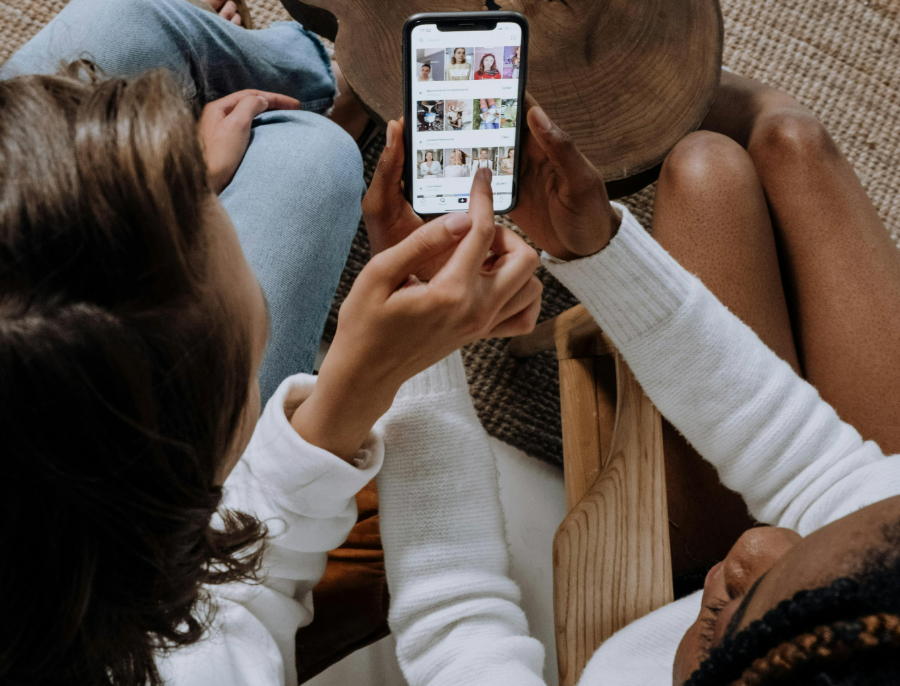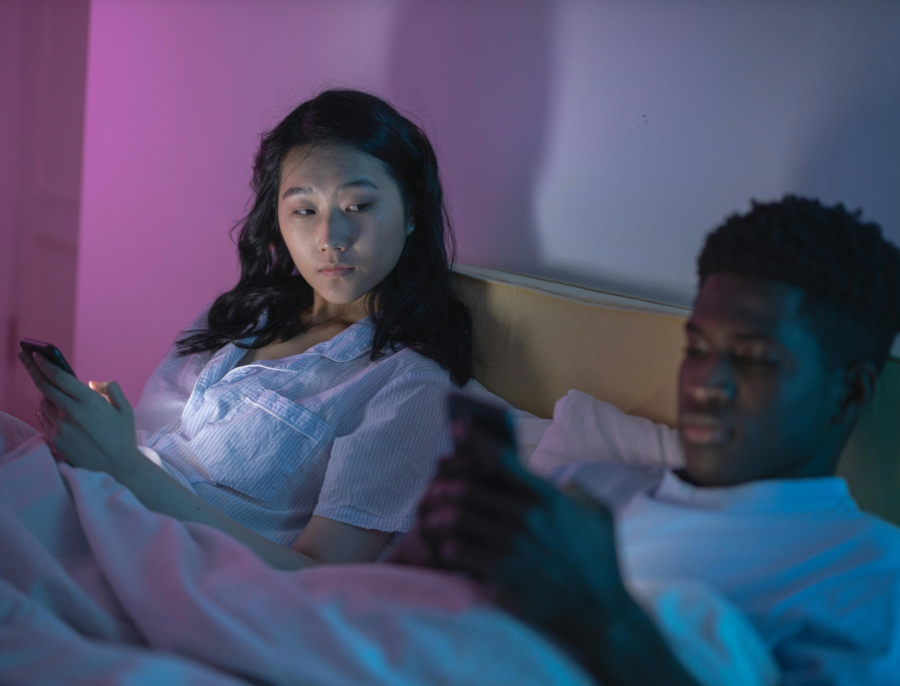Fed Up with the Digital Friendship Game? It’s Time to Reassess Social Media Relationship Dynamics

The digital age can be difficult to navigate, especially when it comes to relationships. Thanks to social media, we are overstimulated, overconnected, and hypersensitive to every like (or lack thereof) and every follow or unfollow. When the people you think are your friends IRL don’t engage with your content or, even worse, soft block or mute you, it can leave you wondering, “Are we even friends?”
Have you ever had a moment where a friend or the person you are crushing on skips your Instagram story? It leaves you spiraling. But try to come back down to earth for a moment. The reality could be as simple as she didn’t didn’t see your story, or she’s just tired of watching other people’s lives all together.
If you are suffering from the paranoia of digital connections, you’ll want to listen to the recent episode of Because I Love You. Host Bria Jones breaks down how social media can negatively affect relationships and friendships. If you have ever questioned your standing with someone after a lack of social media engagement, you’re not alone.
The quiet panic when friends don’t engage with your content
Jones shares her personal experience of feeling “muted” by a real friend. After having a baby, she realized that this friend had not liked any of her posts for an entire year—which in the social media era might as well be forever. Needless to say, it left Jones feeling a cocktail of emotions—rejection, shame, hurt, and confusion. It also drove Jones to assumptions that she had done something wrong or that perhaps her friend doesn’t like her pregnancy content.
Although it stung to realize that a close friend wasn’t interested in engaging with her content in the last year, she admits she doesn’t have to understand the nuance behind her friend’s decision. “I know I have talked a lot about pregnancy and early motherhood, and that can be really triggering. I don’t think this person even wants kids. That’s confusing, but maybe that is the answer in itself,” Jones states.
How did Jones figure out her friend has not liked or engaged with her content in more than a year? It’s a sneaky little function on Instagram called the shared activity feature, which allows users to view mutual interactions with another account, such as likes, comments, and tags. It’s as if Instagram is trying to orchestrate more messiness in our digital relationships.
The effects of social media on relationships
In our social media age, it’s easy to feel paranoid about friendships. Digital platforms have turned friendships into passive performances. You engage with your friends’ content and celebrate them to show you care, but you still get soft blocked or muted. Or you can take a quieter, more observatory role and still get soft blocked.
“I have been on both ends, and I still have had the same result. I don’t know how to show up. The paranoia has me not wanting to engage with friends’ content at all,” Jones says.
Instead of engaging with friends’ content, Jones has curated her algorithm to simple “brain rot” content. Funny, nonsensical, humorous, niche videos that she can laugh about with her Gen Z younger sister. Jones’ approach of disconnecting is an easy and simple way to opt out of the “social media Olympics” of friendship, that’s for sure.
Dealing with feelings of rejection and being misunderstood online
So what do you do when you are experiencing online silence from a friend? First, it’s time to accept reality. This person is engaging with social media content, just not yours. Sometimes, your digital relationship with a person can tell you where they stand. “We joke about equating likes with love. But we live in an era where it’s not a joke anymore. That is really what is going on,” Jones explains.
It hurts the ego, of course. There’s no shame in admitting it. But it’s up to you to decide if it’s worth reaching out or just accepting online silence from “friends.” The whole thing is pretty exhausting, but Jones advises, “The answer depends on the situation. Maybe the silence is personal, but other times, maybe it’s not that deep. I encourage you to go with the latter first and give people the benefit of the doubt.”
Read Next:
- How To Find Someone On Dating Apps and Prove They’re Cheating
- Casual, Cool, Convenient: 8 Apps For Hooking Up
- The Spiritual Way to Stop Losing Your Shit




















Leave a Reply